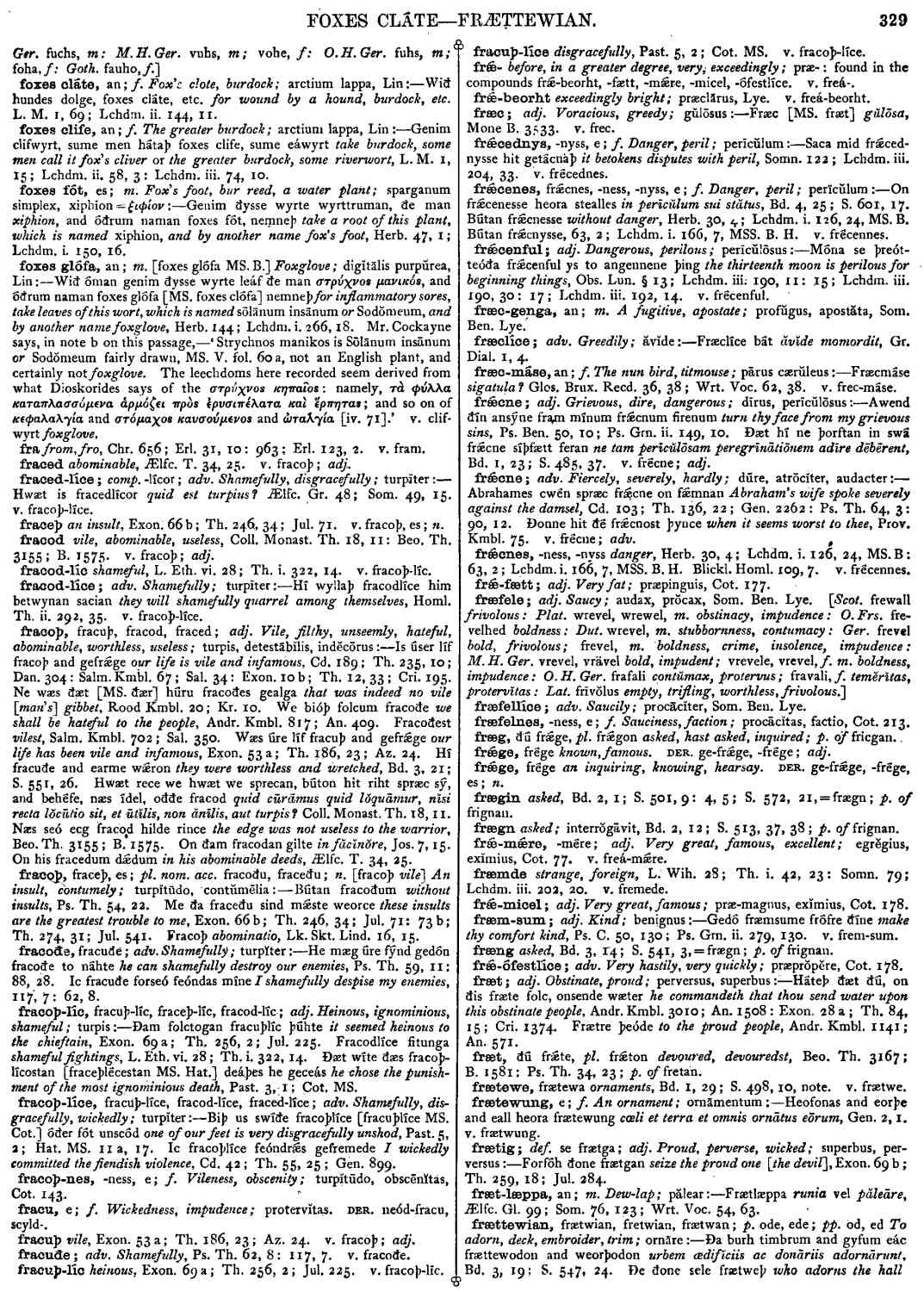fracoþ
- adjective
-
Is úser líf fracoþ and gefrǽge
our life is vile and infamous,
- Cd. 189 ;
- Th. 235, 10 ;
- Dan. 304: Salm. Kmbl. 67 ;
- Sal. 34: Exon. 10 b ;
- Th. 12, 33 ;
- Cri. 195.
-
Ne wæs ðæt [MS. ðær] húru fracoðes gealga
that was indeed no vile [man's] gibbet,
- Rood Kmbl. 20 ;
- Kr. 10.
-
We bióþ folcum fracoðe
we shall be hateful to the people,
- Andr. Kmbl. 817 ;
- An. 409.
-
Fracoðest
vilest.
- Salm. Kmbl. 702 ;
- Sal. 350.
-
Wæs úre líf fracuþ and gefrǽge
our life has been vile and infamous,
- Exon. 53 a ;
- Th. 186, 23 ;
- Az. 24.
-
Hí fracuðe and earme wǽron
they were worthless and wretched,
- Bd. 3, 21 ;
- S. 551, 26.
-
Hwæt rece we hwæt we sprecan, búton hit riht spræc sý, and behéfe, næs idel, oððe fracod
quid cūrāmus quid lŏquāmur, nĭsi recta lŏcūtio sit, et ūtĭlis, non ănīlis, aut turpis?
- Coll. Monast. Th. 18, 11.
-
Næs seó ecg fracod hilde rince
the edge was not useless to the warrior,
- Beo. Th. 3155 ;
- B. 1575.
-
On ðam fracodan gilte
in făcĭnŏre,
- Jos. 7, 15.
-
On his fracedum dǽdum
in his abominable deeds,
- Ælfc. T. 34, 25.
Bosworth, Joseph. “fracoþ.” In An Anglo-Saxon Dictionary Online, edited by Thomas Northcote Toller, Christ Sean, and Ondřej Tichy. Prague: Faculty of Arts, Charles University, 2014. https://bosworthtoller.com/12115.
Checked: 1